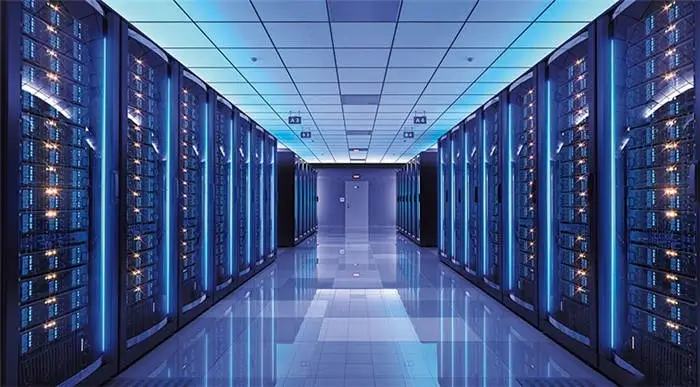1. Введение
В современном мире стремительного технологического развития искусственный интеллект подобен яркой звезде, освещающей путь прогресса. Среди его направлений индустрия интеллектуальных вычислений на базе ИИ, являясь ключевым ответвлением области искусственного интеллекта, стремительно набирает обороты и привлекает внимание представителей самых разных сфер деятельности. Следующие несколько лет, без сомнения, станут важным этапом в развитии этой индустрии, сопровождающимся новыми возможностями и вызовами. В данной статье будет проведён глубокий анализ тенденций развития индустрии интеллектуальных вычислений на базе ИИ за последние годы, который послужит ориентиром для компаний и государственных органов в их дальнейшем движении вперёд.
2. Обзор индустрии вычислений на основе искусственного интеллекта
Индустрия вычислений на базе искусственного интеллекта — это быстро развивающийся сектор, основанный на технологиях ИИ и поддерживаемый высокопроизводительными компьютерными системами. Она охватывает широкий спектр компонентов — включая ИИ-чипы, умное оборудование, интеллектуальное программное обеспечение и сервисы на базе ИИ. Как огромный и сложный технологический комплекс, каждая его часть играет важную и незаменимую роль.
ИИ-чипы составляют фундамент этой структуры, обеспечивая вычислительную мощность, необходимую для работы всей экосистемы. Умное оборудование выступает в роли её физического интерфейса, внедряя интеллект во все сферы современной жизни — от умных домов и интеллектуального транспорта до медицины с поддержкой ИИ.
Интеллектуальное программное обеспечение выступает в роли центральной нервной системы, внедряя передовые алгоритмы и машинное обучение для постоянной оптимизации эффективности и точности вычислений. Оно создаёт упрощённую среду разработки как для бизнеса, так и для разработчиков.
Сервисы на базе ИИ представляют собой «лицо» индустрии, напрямую взаимодействующее с пользователями. Используя технологии распознавания голоса, изображений и обработки естественного языка, эти сервисы приносят удобство и эффективность в повседневную жизнь. Быстрый рост индустрии интеллектуальных вычислений становится мощным двигателем глобального экономического прогресса, значительно повышая качество жизни и коренным образом меняя наш образ жизни.
3. Тенденции в индустрии вычислений на базе искусственного интеллекта к 2025 году
1) Прорывы в технологиях ИИ-чипов
По мере стремительного развития технологий ИИ спрос на вычислительные мощности растёт экспоненциально. Чтобы удовлетворить этот возрастающий спрос, разработка ИИ-чипов находится на пороге значительных прорывов. Производители чипов активизируют научно-исследовательские работы, улучшая производительность и одновременно оптимизируя энергопотребление, чтобы найти идеальный баланс между скоростью обработки и энергозатратами.
Инновации в материалах и технологиях полупроводников открыли новые возможности, прокладывая путь для ИИ-чипов, которые работают как ультраумные процессоры — быстрее, эффективнее и с высокой стабильностью. К 2027 году ожидается, что ИИ-чипы превзойдут традиционные решения по ключевым показателям, таким как производительность, энергопотребление и стоимость, став основным двигателем следующего скачка в области вычислений на базе ИИ.
2) Широкое распространение умного оборудования
Будучи важным столпом экосистемы вычислений на базе ИИ, умное оборудование нашло применение почти во всех отраслях. От интеллектуальных домов, повышающих комфорт и удобство, до умных транспортных систем, обеспечивающих бесперебойную работу города, и медицинского оборудования с поддержкой ИИ, революционизирующего здравоохранение — его влияние ощущается повсеместно.
По мере совершенствования технологий ИИ умные устройства станут неотъемлемой частью повседневной жизни.
Представьте себе:
-
Умные шторы, открывающиеся с рассветом;
-
Автономные автомобили, автоматически выбирающие оптимальные маршруты;
-
Умные диагностические инструменты, обеспечивающие быстрые и точные результаты в больницах.
Благодаря своей функциональности и простоте использования, умное оборудование готово изменить образ жизни, обеспечив беспрецедентное удобство и трансформируя наше взаимодействие с окружающим миром.
3) Инновации в области интеллектуального программного обеспечения
Интеллектуальное программное обеспечение — это мозг вычислений на базе ИИ. Постоянно развивающиеся алгоритмы ИИ и платформы машинного обучения меняют способы обработки и использования данных.
С одной стороны, алгоритмы ИИ функционируют как адаптивный разум — постоянно повышая эффективность и точность, они способны в реальном времени анализировать огромные массивы данных и эффективно решать сложные задачи.
С другой стороны, платформы машинного обучения становятся всё более доступными, создавая для разработчиков удобную среду, напоминающую творческую мастерскую, наполненную мощными инструментами и возможностями. К 2027 году интеллектуальное программное обеспечение станет движущей силой во многих отраслях, обеспечивая быстрое внедрение ИИ и масштабируемую разработку решений.
4) Рост интеллектуальных сервисов
Интеллектуальные сервисы — это ориентированная на человека часть вычислений на базе ИИ, включающая распознавание голоса, анализ изображений и обработку естественного языка. По мере развития этих технологий ожидается их широкое распространение и быстрое принятие обществом.
Будь то естественное общение с виртуальными помощниками, бесшовные платежи с использованием распознавания изображений или поддержка пользователей на базе ИИ — такие сервисы сделают повседневные процессы более удобными и эффективными.
Одновременно с этим качество интеллектуальных сервисов будет постоянно расти — они станут более персонализированными, точными и ориентированными на человеческие потребности, превращаясь в незаменимые инструменты как в работе, так и в повседневной жизни.
5) Глобальная экспансия индустрии вычислений на базе ИИ
В эпоху глобализации индустрия вычислений на базе ИИ выходит за рамки национальных границ: страны по всему миру осознают её потенциал и усиливают поддержку через политические стимулы и финансовые инициативы.
Международные компании активно инвестируют в технологии ИИ и выстраивают глобальные партнёрства для продвижения инноваций и практического применения. Потоки талантов, капитала и технологий между странами стремительно ускоряются, формируя динамичный и высококонкурентный мировой рынок.
К 2027 году сформируется разнообразный глобальный ландшафт в сфере вычислений на базе ИИ — своего рода высокоставочная технологическая гонка между странами. Эта индустрия станет мощным двигателем мирового экономического роста, придавая новый импульс инновациям и развитию по всему миру.
6) Этические и правовые вызовы в сфере вычислений на базе ИИ
Несмотря на огромный потенциал, индустрия вычислений на базе ИИ сталкивается с серьёзными этическими и правовыми вызовами. По мере того как ИИ-системы всё глубже внедряются в повседневную жизнь, усиливаются опасения, связанные с конфиденциальностью данных, прозрачностью алгоритмов и кибербезопасностью.
Автоматизация задач может привести к трансформации рынка труда, вытесняя определённые профессии и требуя структурных изменений в подготовке кадров. Для решения этих проблем потребуется ужесточение нормативно-правовой базы, которая будет направлять развитие отрасли в рамках этических и юридических норм.
Компании должны взять на себя ответственность, внедрять механизмы саморегулирования и активно сотрудничать с государственными структурами и гражданским обществом, чтобы обеспечить безопасное, этичное и ориентированное на благо всего общества внедрение технологий ИИ.
4. Заключение
Следующие несколько лет станут решающими для индустрии вычислений на базе ИИ. Мы станем свидетелями значительных технологических прорывов в области ИИ-чипов, умного оборудования, интеллектуального программного обеспечения и сервисов на базе ИИ. Эти достижения станут драйверами глобального экономического роста, изменят образ жизни людей и обеспечат более интеллектуальные и эффективные решения.
В то же время необходимо решать проблемы этики и управления. Компании должны укреплять чувство ответственности, действовать в рамках нормативных требований и сотрудничать со всеми заинтересованными сторонами для создания здоровой и устойчивой экосистемы. Только так индустрия вычислений на базе ИИ сможет стать по-настоящему положительной силой, способствующей развитию общества и благополучию человека.
5. Рекомендации
1) Увеличить инвестиции в исследования и разработку ИИ-чипов
Бизнесу следует активизировать исследования в области технологий ИИ-чипов, привлекая лучших специалистов и создавая специализированные команды. Государства могут поддерживать эти усилия через гранты, субсидии и благоприятные политики, способствующие повышению производительности, улучшению энергоэффективности и обеспечению долгосрочной конкурентоспособности.
2) Продвигать интеграцию умного оборудования в повседневную жизнь
Необходимо стимулировать внедрение умного оборудования во всех отраслях. Это включает развитие решений для умных домов, создание интеллектуальных транспортных систем и интеграцию ИИ в здравоохранение. Расширение сфер применения принесёт ощутимую пользу в повседневной жизни и ускорит цифровую трансформацию.
3) Поощрять инновации в программном обеспечении и поддержку разработчиков
Поддерживать постоянные инновации в алгоритмах ИИ и платформах машинного обучения за счёт увеличения инвестиций и сотрудничества между академическими кругами и промышленностью. Государства должны создавать общественную инфраструктуру и инновационные центры, чтобы снижать барьеры для разработки и стимулировать появление более креативных решений.
4) Расширять внедрение и повышать качество ИИ-сервисов
Следует повышать осведомлённость общественности и доверие к ИИ-сервисам. Компаниям необходимо улучшать качество услуг, персонализировать пользовательский опыт и постоянно адаптироваться к меняющимся потребностям. Более интеллектуальные и ориентированные на человека ИИ-сервисы станут ключом к удовлетворению пользователей и успешному выходу на рынок.
5) Укреплять международное сотрудничество
Компаниям следует активно развивать международные партнёрства и сотрудничество в области НИОКР и разработки стандартов. Государства могут оказывать дипломатическую и финансовую поддержку, помогая бизнесу выходить на глобальные рынки и укреплять национальную конкурентоспособность.
6) Улучшать правовой и этический контроль
Государствам необходимо устанавливать чёткие нормы регулирования разработки и использования ИИ, включая вопросы конфиденциальности, защиты данных и ответственности алгоритмов. Одновременно компании должны создавать этические рамки и внутренние механизмы контроля для обеспечения безопасных и ответственных инноваций.
С надеждой смотрим в будущее, ожидая захватывающих достижений. Совместными усилиями отрасли, правительства и общества индустрия вычислений на базе ИИ имеет потенциал сформировать более умное, устойчивое и процветающее будущее для всех.




